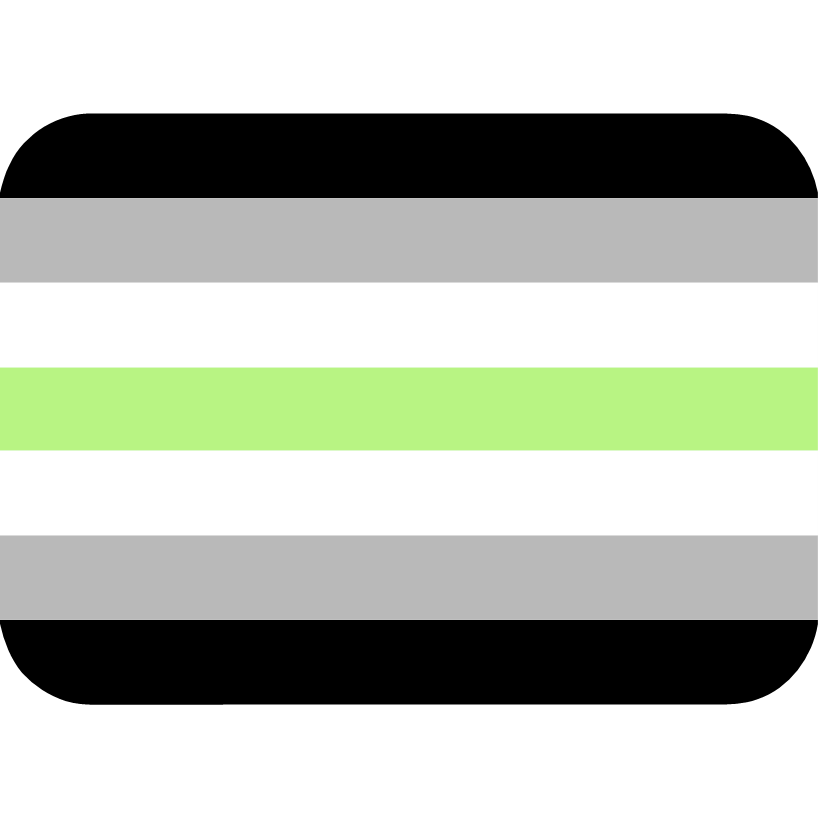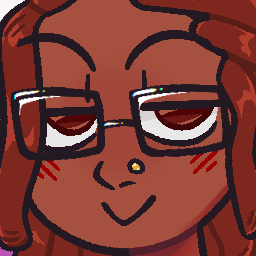I’ve identified as non-binary without a microlabel for a long time. I didn’t really have a way to understand just how I experienced my non-binary identity. A long time ago, I was questioning which microlabel worked best for me, but I just couldn’t find an answer back then. It seemed like the descriptions of none of them were truly relatable, so I just went with “non-binary” more broadly and stopped looking into it at that point.
Fast forward to yesterday, and I was having a talk with my partner about gender. Because she is cis, she didn’t relate to a lot of what I was saying, but I realized that I don’t see gender in having this discussion. When I say “I don’t see gender,” I’m not just talking about in myself or my partners (I am pan, so it fits), but I have a hard time perceiving gender in anyone or anything, at least in the way that most people would do. Gender is insanely irrelevant to my mind and operating in this world. Now, that’s not to say I don’t look at someone who clearly “passes” as a man and don’t know how to tie the label of “man” to them, but there isn’t as much substance to how I perceive these people that I’d think most people would have. It feels more objective and without personal feelings to what I understand a “man” to be because I don’t have a personal understanding of what gender manifests as much as I have an objective understanding of what it manifests as.
It’s very hard to word this feeling properly, but I noticed this became far more coherent to me after I read The Gender Accelerationist Manifesto (TGAM) by Vikky Storm and Eme Flores. I feel like this cleaned up a lot of how I view gender as a whole and a concept, not just me personally, but that indirectly led to me understanding more about my own sense of gender, and my own sense of gender is effectively none.
What I’m saying is that I’m agender.
I always felt like my feelings on gender as a concept made me a weirdo, especially when I learned how to process it better after reading TGAM, but for some reason, I never truly connected the two dots until after talking to my partner about it. I really more or less give her credit for helping me come to this realization because she is the only person I could’ve felt this comfortable talking to about these kinds of feelings on gender at the moment, even though she is cisgender and definitely doesn’t experience or perceive gender the way I do. She specifically asked me, “Would you consider yourself agender?”, while we were talking about these things, and at the time, I said “No, I wouldn’t use that term,” but it got me thinking much afterwards, and I talked to her about it more in detail and accepted it as a label for myself yesterday, June 6.
Before reading TGAM, I used to say things like “Oh, I have a gender, but I’m not sure how to describe it, so I’ll just call it the broad term of non-binary.” However, I also look back and I realize that I didn’t understand what “gender” was itself. my views were still somewhat medicalist in nature despite me being non-binary, where I interpreted my gender as this very fixed and rigid particular thing rooted in reality rather than a product of the construct of gender that humanity has set up. This seemed clear to me especially since I have dysphoria that seemed so real and daunting, so I thought I had to make sense of my gender being something rather than nothing.
Well, it is nothing. And the result of this? I feel more liberated in a way. I feel like my uneasy feelings of not knowing how to understand my gender got far more unscrambled. Sometimes, having a common word to relate to is helpful in letting people know that they’re not alone in what they experience. It just so happened that “agender” is that word to make me feel more peace with my sense of gender.
BTW, this actually adequately explained to me why I’m comfortable going by any and all pronouns. For some reason, I had the essentialist mindset that “Going by any and all pronouns is the opposite of being agender!” that I think messed with my view of me being agender, but the irony is that I don’t even see gender in words like “he,” “she,” “they,” or “it,” at all, so it ended up making sense for me being agender in the end.
Fitting discovery for pride month!




